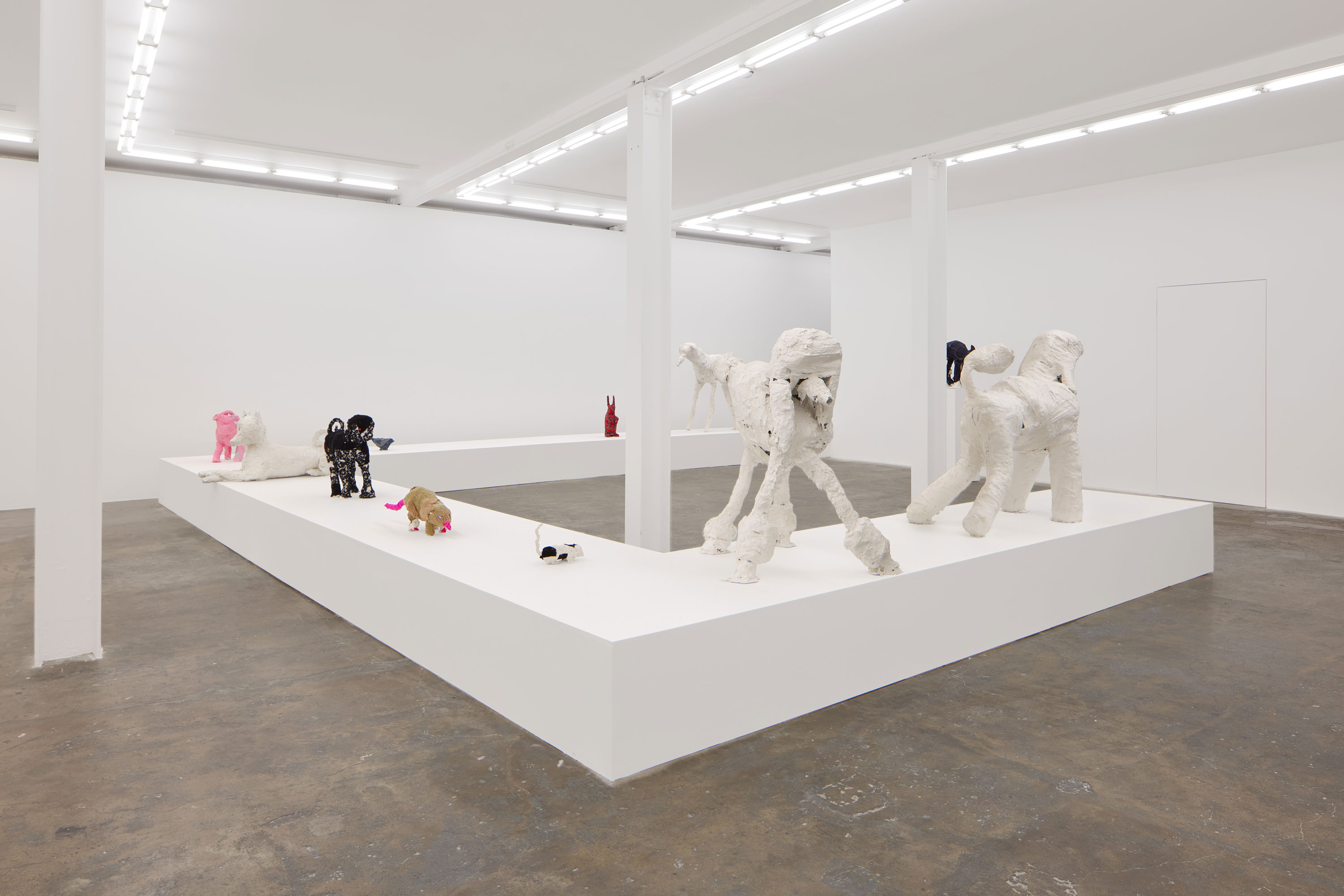In Love Love Love, the second solo exhibition of Zurich-based artist Gina Fischli (b. 1989, Zurich) at Soft Opening, the artist presents a runway show of urban animals. Frozen in states of poised motion while progressing down a catwalk, Love Love Love puts adoration in stark relief with dominance. The treatment humans extend towards domestic pets via overbreeding, styling and accessorising evidences a conflation of love, care and control. While breeding has been around for tens of thousands of years, during the Victorian era, this practice intensified alongside a growing popularity of dog shows that judged the aesthetics of a dog’s physical features, rather than its working ability. This shift led to different goals for breeders and a focus on external appearance was prioritised over the health of an animal. Different breeds fast became status symbols for their owners: signifiers of taste, class and wealth.
Fischli utilises the catwalk—a staging device found in the fashion industry to elevate clothing display to performance—to direct the encounter between sculpture and spectator. The works in Love Love Love build on a continuing series of animal sculptures, either displayed atop puffed cushions, slender plinths or occasionally both. In this series, Fischli examines human-animal relationships and dynamics, with some of the familiar creatures dressed in humanising outfits made from scraps of garment fabric including tartan, corduroy, velvet and denim. By turning poodles, pugs, rabbits, rats and foxes into grotesquely caricatured props, Fischli interrogates our propensity to exert our own position of power over our surroundings often by processes of projection, extension and subsumption. These dynamics become metaphoric descriptions of the power play found in many interpersonal relationships.
For Fischli, the parallels between these common attitudes towards animals and the purpose we give to the arts are uncanny. Much like the pageantry of dog breeding or fashion shows, galleries and arts institutions similarly prioritise entertainment and aesthetics—but at what cost? Have art and by proxy, exhibitions become domesticated, overbred? Love Love Love is the story of pets, the story of art—and of us.

